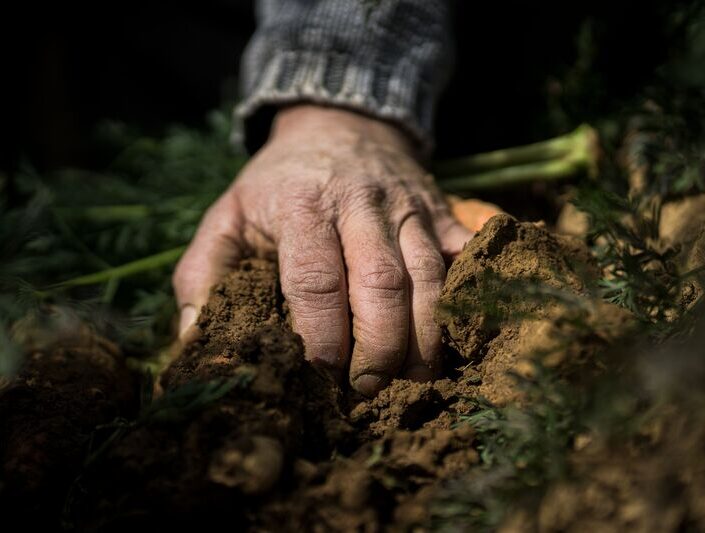
3 of 12 benefits of biodynamic farming
Mar 1, 2024
The following is the 3rd of 12 articles published every month in 2024 by Biodynamic Federation Demeter on the various benefits of biodynamic farming and look at how it can a climate solution.
Soil regeneration
Soil fertility is key. It is the foundation for good quality products, our health and of course for the well-being of our planet. This is why one of the fundamental values of biodynamic farming is the regeneration of the soil. Biodynamic farming is not only about food production, but also about the sustainability and resilience of the farm itself which relies on soil fertility. The aim is to give something back to the earth by bringing the soil to life.
Towards climate mitigation
This includes maintaining and increasing the natural fertility of the soil through appropriate cultivation, animal husbandry and fertilisation. The aim of fertilisation is primarily to build up humus and thereby create soil fertility from which plants are nourished. The humus layer provides a source of nutrients for plants, regulates the air and heat balance of the soil, and binds CO2. All these elements are crucial for food production, but they also play a crucial role for the climate. The carbon sequestration potential of living and fertile soils gives them a major role in achieving climate mitigation and thus highlights the role of farming in the current climate crisis.
Fostering resilience through soil fertility
Biodynamic farming works consistently to build up and enliven the soils through compost applications, animal and green manures, crop rotations, appropriate tillage, cover crops, and fodder plants. Each of these serves a different purpose – clover grass, for example, binds nitrogen from the air in the soil – but all of them foster the farm’s resilience and self-sufficiency.
